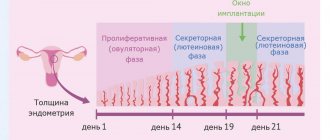What are the dangers of colds and flu in pregnant women?
Respiratory infections pose two threats. Firstly, they may be accompanied by fever, which can lead to defects in fetal development. And secondly, influenza and ARVI during pregnancy can lead to the development of complications. During pregnancy, a number of changes occur in the immune response, as well as in the functioning of the heart and lungs, making the mother's body especially vulnerable. Therefore, colds and flu in expectant mothers are much more severe than in non-pregnant women and are often complicated by bacterial infections, including bronchitis and pneumonia.
The World Health Organization has included pregnant women at risk of developing severe and/or complicated influenza. It has been proven that pregnant women with the flu require hospitalization 4 times more often than non-pregnant women. Among patients in the third trimester, 8% require hospitalization in intensive care units [3].
Timely vaccination can prevent infection with the influenza virus during pregnancy. If infection has already occurred, the woman needs to begin treatment for ARVI or influenza during pregnancy as early as possible.
2nd trimester screening
Health control is extremely important for the expectant mother. Regular examinations and tests prescribed by the doctor are necessary to ensure that the pregnancy is proceeding normally and the child is developing correctly.
This is the purpose of the second screening during pregnancy. The optimal time for its completion is in the 18th week, the recommended time interval is from the 17th to the 20th week. During screening, a woman will need to undergo blood and urine tests and an ultrasound. Doctors focus on:
- hormonal examinations;
- monitoring the function and condition of the kidneys;
- hemoglobin level in the blood to eliminate the risk of iron deficiency anemia;
- anatomical ultrasound examination of the fetal anatomy.
“In the first trimester, we do an analysis of the level of glucocorticoid hormones,” explains Evgeniy Petreikov. — In the second, we take this hormone again and look at the dynamics. If abnormal glucocorticoid levels are detected, replacement therapy should be prescribed as early as possible to reduce the risk of developmental delays, late miscarriage and premature birth.”
To exclude the risk of developing diabetes mellitus in pregnant women, a glucose tolerance test is performed from the 24th to the 28th week. Even if a woman has no prerequisites for developing the disease, she still needs to be examined. The expectant mother is asked to drink a glucose solution and blood is taken after an hour and two hours. Based on the obtained blood glucose levels, a “sugar curve” is constructed. If it passes above normal values, gestational diabetes mellitus is diagnosed. It requires mandatory monitoring by doctors and the woman herself.
pixabay.com/
Is it necessary to bring down a high temperature during pregnancy and what medications can be used?
It is important to manage fever in pregnant women in a timely manner, since high temperature can negatively affect pregnancy. It is especially dangerous in the first 12 weeks, when the formation of all organs and systems occurs. Hyperthermia in pregnant women during the first trimester doubles the risk of developing neural tube defects (future brain and spinal cord defects) and may also be associated with other birth defects and adverse outcomes in the baby [1].
It is not known for certain which temperature exceeding the greatest danger. Thus, data from a cohort study involving more than 77 thousand women showed that the incidence of malformations was approximately the same among those who reported a fever below 39 and above 39 degrees in the first trimester [1].
The drug of choice for reducing fever is paracetamol, which is approved for use throughout pregnancy [2]. In addition, ibuprofen is used as an antipyretic and analgesic in the first and second trimesters. Multivitamins containing folic acid can reduce the risk of developmental defects due to hyperthermia [1].
How to reduce a sore throat? What antiseptics can I take?
During pregnancy, it is allowed to use a number of antiseptics for sore throats, so it is not necessary to endure sore throat and other unpleasant symptoms during this period. Medications that expectant mothers can take include:
- ambazon, which has an antimicrobial effect against streptococci, daily dose 4–5 tablets 0.04–0.05 g;
- the combination of lysozyme + pyridoxine exhibits an antiseptic effect against gram-positive and gram-negative bacteria, fungi and viruses. Vitamin B6 in its composition has a protective effect on the oral mucosa. Prescribe 2 tablets 3-4 times a day.
In addition, warm drinks, which are indicated in unlimited but reasonable quantities, help reduce sore throat.
Treatment of allergic cough
Allergies can also cause cough in pregnant women. Sometimes only during such an interesting period does a woman suddenly experience an allergic reaction to some irritant for the first time.
This type of cough can be distinguished by the following signs:
- more often it is a dry cough, without sputum production, accompanied by a runny nose, tearfulness, and sneezing;
- cough may be accompanied by sudden skin rashes;
- Irritation of the respiratory tract with attacks of suffocation may occur, especially with direct contact with the irritant.
If there is an allergic cough in pregnant women, the doctor must determine what is the irritant - cat hair, chemical, dust, plant, food. When the irritant is eliminated, the symptoms usually go away on their own; no treatment is required. By the way, tobacco smoke can also be a serious irritant. Some women who smoke quit smoking during pregnancy, if only because they begin to suffer from coughing tremors.
However, passive smoking can also cause the same irritation of the respiratory tract. Not to mention the fact that the expectant mother herself and her child in the womb receive their portion of nicotine by inhaling cigarette smoke.
In the treatment of allergic cough, drugs are used that have the least negative impact on mother and baby. Alas, there are no completely safe remedies for allergies.
The doctor may prescribe:
- Suprastin;
- Claritin;
- Becotide;
- Beclomethasone DS;
- Pulmicort;
- Fenistil;
- Diphenhydramine;
- Trexil;
- Terfenadine.
The drugs are not addictive and can be used frequently.
In addition to medications, gynecologists often prescribe general restoratives - vitamin B5, as well as ascorbic acid.
Can pregnant women take any expectorant medications?
Therapists and obstetricians-gynecologists recommend that pregnant women refrain from taking expectorant medications if possible. The vast majority of drugs in this group are prohibited for use during pregnancy, including herbal remedies, which are often considered “safe” by consumers. In fact, plantain syrup, preparations based on thyme and thyme extract, and other popular herbal remedies are contraindicated for pregnant women.
At the same time, the drug ambroxol is still approved for use by pregnant women in the second and third trimesters with the label “with caution.” The same applies to bromhexine - it is prescribed, but only after a careful assessment of the benefit/risk ratio, and only the attending physician can carry it out. Therefore, primary care providers who advise pregnant women with requests for expectorant medications should limit themselves to insistent advice to consult a doctor. And the only recommendation that should be given in such situations is to drink warm drinks and sufficiently humidify the air in the room.
When to immediately contact an obstetrician-gynecologist
There are types of cough for which folk remedies are powerless. The following symptoms will help you understand that urgent medical attention is needed:
- severe cough causes chest or back pain;
- cough is accompanied by attacks of suffocation, as if there is not enough air;
- streaks of blood appear in the sputum released when coughing;
- the temperature jumps to 38.5 degrees.
All this indicates the presence of a serious development of the disease requiring the use of medications. And when prescribing treatment, the doctor will take into account the degree of risk for the fetus and the pregnant woman herself when using certain drugs for treatment. Sometimes complications of an illness are much more dangerous than possible negative reactions during treatment.
What can a pregnant woman take for a debilitating dry cough?
Antitussive drugs, like mucolytics, are prohibited from taking during pregnancy at all or are allowed under the supervision of a doctor after assessing the risks and benefits. Thus, the popular centrally acting antitussive drug butamirate can be taken only in the second and third trimesters and only after consultation with a doctor. The peripheral drug prenoxdiazine is also used with caution during pregnancy. Thus, when counseling a pregnant woman with a dry cough, she should be advised to immediately visit a doctor.
Is it possible to be treated during pregnancy with infusions, decoctions of medicinal herbs or herbal teas?
Despite their natural origin, not all preparations based on medicinal plants, including herbal teas, are safe during pregnancy. Herbs may contain active substances that negatively affect the development of the fetus or increase the tone of the uterus. Herbs can cause miscarriage or stimulate premature labor. Medicinal plants that are unsafe during pregnancy include [4, 5]:
- chamomile - can promote uterine contractions;
- licorice root - may increase the risk of premature birth;
- laxative herbal teas based on senna and other plants - active intestinal peristalsis can stimulate the contractile activity of the uterus;
- common twig - stimulates the production of estrogen, may increase the risk of miscarriage;
- echinacea - activates the synthesis of oxytocin; aloe vera - stimulates the contractile activity of the uterus;
- calendula - has an abortifacient effect and many others.
However, there are also medicinal plants that have been proven safe during pregnancy. Among them [6]:
- raspberry leaves;
- peppermint leaves;
- plantain oval seed shell;
- garlic.
Since the list of medicinal plants that are unsafe during pregnancy is quite large, it is still better to take herbal medicines during this period after consulting with your doctor.
Cough in early pregnancy
During pregnancy, be more attentive to your health. After all, how your baby will feel in the womb depends on how you feel.
If in a non-pregnant state various medications can be used for any disease, then during pregnancy only certain medications can be taken.
If you experience a cough in early pregnancy, be sure to consult your doctor before treatment.
Independent and irregular attempts to cope with the disease can cause increased uterine tone, as well as insufficient oxygen supply to the fetus.
When coughing, the abdominal wall tenses and contracts, and this causes the uterus to contract. Severe coughing that occurs in attacks increases uterine tone. This condition is dangerous due to the threat of miscarriage.
- How to treat cough in the first, second and third trimester of pregnancy: drugs and folk remedies
With a constant cough, a pregnant woman receives less oxygen than needed, and this leads to a failure of blood circulation in the placenta and its insufficient blood supply. And this entails the impossibility of the fetus receiving all the necessary microelements for the development and growth of the child in the womb. All these deviations in women's health can cause fetal hypoxia.
Another unpleasant consequence of a strong cough is vomiting. If you are not trying to cure a cough, then regular vomiting after it can cause dehydration and remove many beneficial microelements from the body.
Are any antiviral drugs allowed during pregnancy?
The treatment regimen for influenza in pregnant women includes antiviral drugs from the group of neuraminidase inhibitors. They are active against influenza A and B viruses, and their effectiveness has been demonstrated in numerous clinical studies [7, 8]. Antiviral drugs of this group disrupt the ability of viral particles to penetrate into cells, which leads to localization of infection in the body, alleviation of the condition and reduction of the likelihood of complications during pregnancy [7]. According to international and Russian recommendations, neuraminidase inhibitors are the drugs of choice for influenza, including during pregnancy [8]. Their effectiveness is highest when taken within the first 48 hours after the onset of the disease, so when the first flu symptoms appear, it is very important to consult a doctor and begin treatment. Let us remember that neuraminidase inhibitors are prescription drugs ( also in this case it is necessary to make sure that the patient has the flu and not ARVI in pregnant women - editor's note.
).
What is the difference between a normal cough and a wheezing cough?
Normal cough
. Strong, sharp exhalations are caused by irritation of receptors located on the entire surface of the mucous membrane of the respiratory tract. Thanks to coughing, the lumen of the respiratory organs is freed from the accumulation of mucus, foreign particles and anything that obstructs the passage of air.
But with respiratory diseases, the cough characteristics may change:
- superficial “barking” cough is often observed with laryngitis, tracheobronchitis and represents individual cough impulses, the so-called coughing;
- paroxysmal cough - a series of strong coughing impulses that can last up to several minutes, often caused by bronchitis, whooping cough or insufficient volume/high viscosity of bronchial mucus, which makes it difficult to eliminate.
Cough with wheezing
. With such a cough, regardless of its duration or intensity, distinct wheezing is heard in the chest when inhaling and/or exhaling. This sound is the result of air passing through a narrowed airway or through a buildup of mucus. In this case, wheezing can be dry (with laryngitis, tracheitis, bronchitis) or wet (with diseases accompanied by accumulation of sputum in the respiratory organs, and with friction of the walls of the bronchi against the lungs).
The wheezing itself can be whistling, bass, sonorous, or silent. They may appear only during coughing episodes or even outside of them. The combination of all the characteristics of a cough gives the doctor an idea of what kind of disease he is dealing with.
How to boost immunity during pregnancy?
The following help increase the body's defense against respiratory infections during pregnancy:
- a balanced diet that compensates for a woman’s needs for nutrients, vitamins, and microelements;
- healthy sleep;
- laughter – helps to activate the immune response [9];
- taking probiotics, which normalize the composition of the intestinal flora, which helps reduce the risk of respiratory infections and reduce the severity of cold symptoms [10];
- taking multivitamin complexes containing vitamin D, which helps relieve cold symptoms and reduce the incidence of infection [11].
In addition, to increase the immune response, the doctor can prescribe interferon alpha-2b drugs - intranasal or rectal (there may be restrictions on the duration of pregnancy, for example, some of them are prescribed only after 14 weeks - editor's note).
Prevention of ARVI
Prevention of viral infection during pregnancy is mostly nonspecific and is aimed at maintaining the woman’s physical health, limiting contact, especially with people who have signs of acute respiratory viral infection, and maintaining hygiene standards. Specific prevention is only possible to prevent infection with seasonal influenza.
Nonspecific prevention
Obstetricians-gynecologists do not advise taking immunostimulating, multivitamin medications unless absolutely necessary. Among the main recommendations:
- Avoid contact with people who have ARVI symptoms; if living together, organize isolation, wear a mask, frequently ventilate the room, and carry out wet cleaning with antiseptics.
- At home, maintain an air humidity level of 50% and irrigate the nasal mucosa with weak saline solutions.
- Limit visits to crowded places. During visits to a store, clinic, or other institutions, wear a medical mask and change it every 2 hours or until the material from which it is made becomes wet.
- Do not touch your face with dirty hands after any contact (for example, handrails, door handles, bills or goods in a store) - wash your hands first or treat them with antiseptics.
- Try to maintain a sleep-wake schedule and eat a balanced diet. Take regular walks in the fresh air.
Specific prevention
Flu vaccination during pregnancy is allowed for women in the 2nd and 3rd trimesters. Its safety has been confirmed by clinical trials. The vaccine is usually well tolerated and provides immunity from the virus within 4 weeks. WHO experts recommend the use of drugs with an antigen dosage of 15 mcg; they assess other vaccines as insufficiently effective.
So the expectant mother can choose a vaccination from the following list:
- "Ultrix";
- "Vaxigrip";
- "Influvac";
- "Flu-M".
Vaccination is contraindicated in patients with individual intolerance to vaccine components, systemic diseases, acute conditions or decompensation of severe chronic pathologies. If a woman has had an acute respiratory viral infection during pregnancy without any complications, she can maintain an interval of about 2-3 weeks and get a flu shot.
Is it possible for a pregnant woman to apply mustard plasters and pepper plaster?
Despite the fact that both mustard plasters and pepper plaster act externally and do not affect the development of the fetus, they are potentially dangerous for pregnancy. Heat treatments can increase uterine contractility, which is associated with an increased risk of miscarriage or premature birth. In addition, increased microcirculation, which occurs under the influence of mustard plasters or pepper patches, can change uteroplacental blood flow, which is also undesirable. The greatest danger is posed by thermal procedures in the first and last trimester of pregnancy - in the first they increase the risk of miscarriage, in the last - premature birth.
Unacceptable folk methods
Some herbs used in traditional medicine are inadmissible during pregnancy. Since their use can cause early labor and miscarriages due to increased blood pressure.
To avoid:
- Treatments with coltsfoot, ginseng, St. John's wort, ginkgo biloba, sage. Honey also carries the risk of allergic reactions and must be handled with caution. Acceptable in combination with milk;
- The use of Vietnamese cream “Zvezdochka” is not recommended due to the risk of allergic reactions to the components;
- You also need to be careful when warming up. No mustard plasters or cans! Instead of mustard plasters, it is better to use a cabbage leaf, on which you need to spread honey (or honey mixed with fresh cottage cheese) and apply it to your chest at night. You can secure the cabbage leaf with a warm scarf.
- Soaring your feet is also not recommended. You can wear warm wool socks instead.
Of course, you should not take hot baths, visit the sauna, or steam in the bathhouse. All this threatens bleeding and premature birth. Of course, alcohol treatment is not suitable either. During pregnancy and especially illness during such a crucial period, it is worth giving up bad habits altogether.










